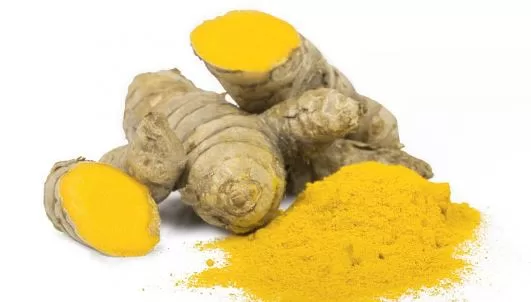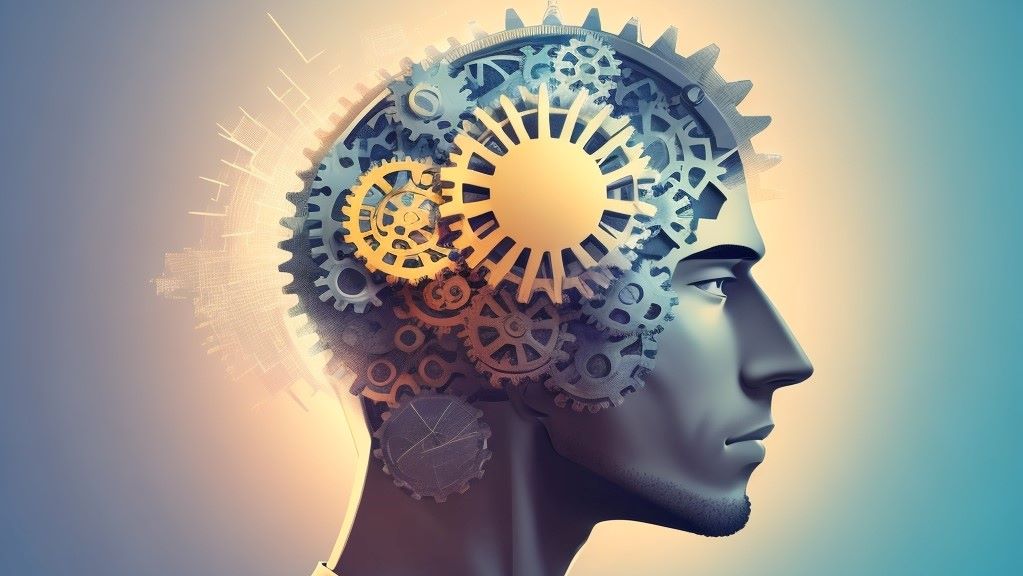In today's fast-paced and competitive work environments it's no surprise that people are looking for ways to sharpen their mental acuity, something to give them that cognitive edge. The booming, largely unregulated, supplement industry has responded with a bewildering range of products that claim to boost mental clarity and sharpness. “Take a pill and get smarter” is the suggestion. Here, we explore a range of dietary supplements that have been studied scientifically and have been shown to support brain function.
But let’s be clear at the onset. The most effective thing you can do to keep the cobwebs out of your brain and make sure it is running at peak capacity can be summed up as follows: 1) eat a balanced diet, 2) exercise regularly, 3) get a healthy amount of sleep and 4) keep your body hydrated. A wealth of solid scientific research has shown that each of these 4 factors not only have a powerful impact on brain health and cognition but your overall health wellbeing.
That being said, it is fair to say that many of us do not live a perfectly tuned lifestyle and could benefit from a variety of supplements that can provide a range of benefits such as improved memory, increased focus, and reduced stress. In this article, we'll take a closer look at some of the most popular and efficacious supplements for brain health and detail their potential benefits.
Caffeine

Photo by Nathan Dumlao on Unsplash
Research has shown that that morning cup of tea or coffee is more than just a comforting ritual - it can actually be good for the brain. It's no surprise that caffeine is one of the most widely consumed substances in the world. If you enjoy a good cup of coffee then you know it increases alertness and reduces fatigue. Caffeine works by blocking the action of adenosine, a neurotransmitter that promotes relaxation and sleepiness, which leads to its energizing effects.
In addition to its energizing hit, caffeine has also been found to enhance cognitive function, attention, and reaction time. It may also improve physical performance and endurance.
While we all love a good cup of coffee, it is important to note that individual responses to caffeine can vary, and excessive consumption can lead to side effects such as jitteriness, increased heart rate, and insomnia.

Photo by Angel Sinigersky on Unsplash
B vitamins
The eight essential B vitamins play roles in many bodily systems including brain function. They help create energy from food, produce blood cells, and maintain healthy skin, among other actions.
They include:
- Thiamin (B1) helps the body convert food into energy. It is also important for nerve function and muscle contraction.
- Riboflavin (B2) helps the body use oxygen and produce energy. It is also important for the health of the skin, eyes, and hair.
- Niacin (B3) helps the body convert food into energy and produce hormones. It is also important for the health of the skin, mouth, and digestive system.
- Pantothenic acid (B5) helps the body produce energy and synthesize cholesterol and fatty acids. It is also important for the health of the adrenal glands.
- Pyridoxine (B6) helps the body use protein and carbohydrates for energy. It is also important for the health of the nervous system and skin.
- Biotin (B7) helps the body use carbohydrates and fats for energy. It is also important for the health of the hair, skin, and nails.
- Folate (B9) is important for the production of red blood cells and the development of the fetus during pregnancy.
- Vitamin B12 (cobalamin) is important for the production of red blood cells and the function of the nervous system.
Most B vitamins are water-soluble, which means they are not stored in the body and must be consumed regularly in the diet. The exception to this is vitamin B12, which is stored in the liver for many years.
A healthy diet that includes meat, poultry, fish, eggs, dairy products, whole grains, leafy green vegetables, legumes, nuts, and seeds should cover you. However, if your diet is poor then deficiencies could and should be made up for with supplements.
Vitamin D
Vitamin D is a fat-soluble vitamin that is synthesized in the skin upon exposure to sunlight. It can also be obtained through certain dietary sources, such as fatty fish, fortified dairy products, and supplements. Vitamin D plays a crucial role in various bodily functions, including bone health, immune function, and brain health. Research suggests that vitamin D deficiency may be associated with an increased risk of cognitive decline, depression, and other mental health conditions. Adequate vitamin D levels have been linked to better cognitive function and a reduced risk of neurodegenerative disorders.
As with other essential vitamins a healthy diet, and in this case, getting some sun, will provide what you need. However, if the diet is poor and you spend a lot of time indoors then you may consider supplementing to make sure.
Vitamin E
Vitamin E is an essential nutrient that acts as an antioxidant, protecting the body from free radicals that can cause damage to cells. It has been found to be particularly beneficial for brain health as it helps combat free radicals that may damage brain cells. With a balanced diet adequate vitamin E can be obtained from food sources such as nuts, seeds, and vegetable oils. These foods offer a range of other nutrients and benefits that can contribute to overall health and well-being. It is important to note that individuals with specific health conditions or concerns should speak with their healthcare provider about whether vitamin E supplements may be appropriate for them.
Magnesium
Magnesium is an essential mineral that is involved in numerous biochemical processes in the body. Magnesium plays a vital role in nerve function, muscle contraction, and bone health. Research suggests that magnesium supplementation may have cognitive benefits, particularly in individuals with magnesium deficiency because it is involved in the regulation of neurotransmitters and the maintenance of neuronal integrity. It is not surprising therefore that research has shown positive effects of magnesium on memory, attention, and overall cognitive function. As with vitamins detailed above adequate magnesium can be obtained through various dietary sources, including nuts, seeds, leafy green vegetables, and whole grains. But again, if you haven't been eating properly supplementation may yield positive benefits.
Omega-3 fatty acids

Omega-3 fatty acids are essential fats that are derived from marine sources such as fatty fish (e.g., salmon, mackerel, sardines) and certain algae. A common supplement in this context are fish oil capsules. These fatty acids, including eicosapentaenoic acid (EPA) and docosahexaenoic acid (DHA), play crucial roles in various bodily functions, particularly cardiovascular health and brain function. They have been shown to reduce triglyceride levels, lower blood pressure, decrease inflammation, and improve cognitive function. Additionally, omega-3 fatty acids may have a positive impact on mental health conditions such as depression and anxiety.
While the effectiveness of omega-3 fatty acids is well-established, it is important to note that individual responses may vary based on factors such as dosage, duration of supplementation, and baseline health status.
Ginseng

Ginseng refers to several species of plants belonging to the Panax genus, including Panax ginseng (Asian ginseng) and Panax quinquefolius (American ginseng). The roots of these plants have been highly valued in traditional Chinese medicine for centuries due to their adaptogenic and stimulant properties.
Research has shown that ginseng supplementation can have numerous benefits for cognitive function, mental performance, memory, and overall well-being. It is believed that the active ingredients in ginseng work by modulating stress hormone levels, enhancing neurotransmitter activity, and providing antioxidant effects.
While ginseng is a rock star of natural supplements that has stood the test of time it is important to note that individual responses to ginseng can vary, and more research is needed to determine optimal dosages and long-term effects of supplementation.
Bacopa monnieri

Also known as Brahmi, is a herb native to India that has been used in traditional Ayurvedic medicine for centuries and has been the subject of extensive research. Numerous studies have shown that Bacopa monnieri supplementation can improve memory consolidation, attention, and cognitive performance in both healthy individuals and those with cognitive decline.
The active compounds in Bacopa monnieri, known as bacosides, are thought to work by increasing blood flow to the brain and promoting the growth of nerve cells. However, more research is needed to fully understand the mechanisms and long-term effects of Bacopa monnieri supplementation.
Ginkgo biloba

This popular supplement is derived from the leaves of the Ginkgo tree, one of the oldest tree species on Earth. Ginkgo biloba extract contains various active compounds, including flavonoids and terpenoids, which are believed to have antioxidant and anti-inflammatory properties. Ginkgo has been widely studied for its potential effects on cognitive function and circulation. Results suggest that Ginkgo biloba can improve memory and cognitive performance, particularly in individuals with age-related cognitive decline or dementia. It is thought to enhance blood flow to the brain and protect against oxidative stress. However, the evidence on its effectiveness remains mixed, with some studies showing positive effects and others showing no significant benefits. Further research is needed to determine the precise mechanisms and potential benefits of Ginkgo biloba supplementation.
Rhodiola rosea

Rhodiola rosea, also known as Arctic root or golden root, has a long history of use in traditional medicine in Russia, Scandinavia, and other cold, mountainous areas. It has been used to increase physical endurance, work productivity, longevity, and resistance to high altitude sickness, as well as to treat various ailments such as fatigue, depression, anemia, impotence, gastrointestinal issues, infections, and nervous system disorders.
Research suggests that R. rosea has adaptogenic properties that help the body cope with stress and promote overall well-being. Its active compounds, salidroside and rosavin, have been associated with improved mental performance, reduced fatigue, and relief of stress and anxiety. R. rosea is thought to work by modulating neurotransmitters, stress hormones, and enhancing mitochondrial function. However, more high-quality studies are needed to establish its precise mechanisms and optimal dosing protocols.
Phosphatidylserine (PS)
PS is a naturally occurring phospholipid found in high concentrations in brain cells. It is derived from various food sources, such as soybeans and bovine brains. Phosphatidylserine plays a crucial role in maintaining cell structure and function in the brain. Research suggests that supplementation with phosphatidylserine may have cognitive benefits. Several studies have demonstrated that phosphatidylserine can improve memory performance and cognitive function, especially in individuals with age-related cognitive decline. It is believed to enhance neurotransmitter release, promote neuronal communication, and support brain cell membrane integrity.
However, more research is needed to determine optimal dosage, long-term effects, and potential side effects of phosphatidylserine supplementation.
Lion's mane mushroom

Lion's Mane, scientifically known as Hericium erinaceus, is a medicinal and culinary fungi that has been used in traditional Chinese and Japanese medicine for centuries. Its unique appearance, resembling a lion's mane, distinguishes itself from other edible mushroom species. Lion's Mane contains bioactive compounds, including erinacines and hericenones, which have been investigated for their potential cognitive and neuroprotective effects. Numerous studies indicate that Lion's Mane mushroom may enhance memory, focus, and overall cognitive performance. Further, research suggests that supplementation with Lion's Mane mushroom may support brain health and improve cognitive function by promoting the production of nerve growth factors that are essential for the maintenance of neurons. However, more research is needed to determine optimal dosages, long-term effects, and potential interactions with other medications.
Ashwagandha

Ashwagandha, also known as Withania somnifera or Indian ginseng, is an herb that has featured in Ayurvedic medicine for centuries due to its adaptogenic and rejuvenating properties. It is derived from the root of the Ashwagandha plant and has been traditionally used to support overall health and well-being. It contains active compounds called withanolides, which have been associated with various health benefits.
Research suggests that Ashwagandha supplementation can help reduce stress and anxiety, improve mood, enhance cognitive function, and support overall well-being. It is believed to modulate stress hormone levels, reduce inflammation, and have antioxidant effects.
Despite its promising benefits, further research is needed to establish optimal dosing and long-term effects of Ashwagandha supplementation. However, it remains a popular natural supplement due to its historical use and its demonstrated health benefits.
Acetyl-L-Carnitine (ALCAR)
ALCAR is a naturally occurring compound derived from the amino acids lysine and methionine. It plays a vital role in energy production and fatty acid metabolism in the body. Acetyl-L-Carnitine has been investigated for its potential cognitive and neuroprotective effects. Research suggests that supplementation with Acetyl-L-Carnitine may improve cognitive function, particularly in individuals with age-related cognitive decline or neurological disorders. It is believed to enhance mitochondrial action, increase neurotransmitter synthesis, and protect against oxidative stress. Some studies have shown that Acetyl-L-Carnitine can improve memory, attention, and overall cognitive performance. However, more research is needed to establish optimal dosing, long-term effects, and potential interactions with medications.
Curcumin

Curcumin is the main bioactive compound found in turmeric, the intensely yellow spice commonly used in traditional Indian cuisine. Curcumin has been extensively studied for its potential health benefits, particularly its anti-inflammatory and antioxidant properties. Research suggests that curcumin supplementation may have cognitive benefits, such as improving memory and attention. It is believed to modulate various molecular pathways involved in inflammation and oxidative stress, which can contribute to cognitive decline.
While studies have certainly shown the positive benefits of curcumin, it has poor bioavailability, meaning that it is not well absorbed by the body. To enhance absorption, it is often consumed with black pepper or in a formulated liposomal or nanoparticle form. Further research is needed to optimize dosing, formulation, and potential interactions with medications.
Resveratrol
Resveratrol, often associated with red wine, is a polyphenol compound found in various plants, including grapes, berries, and peanuts. It has gained attention for its potential health benefits, particularly its anti-inflammatory and antioxidant effects. Resveratrol has been investigated for its potential cognitive and neuroprotective properties. Research suggests that resveratrol supplementation may improve memory, learning, and overall cognitive function. It is believed to modulate various signaling pathways involved in inflammation, oxidative stress, and neuroprotection.
While it is true studies have shown positive effects of resveratrol on cognitive performance, particularly in older adults, further research is needed to determine optimal dosing, long-term effects, and potential interactions with other medications.
Creatine
Creatine is a naturally occurring compound that is synthesized in the body from amino acids. It is mainly stored in skeletal muscles and plays a crucial role in energy production during high-intensity activities. Creatine supplementation has been extensively studied for its potential benefits in sports performance, particularly in activities that require short bursts of intense energy. Research suggests that creatine supplementation can improve power, strength, and muscle mass in athletes. It may also have neuroprotective properties and enhance cognitive function, particularly in tasks that require short-term memory and rapid processing. While creatine is generally safe for most individuals, it is important to stay hydrated and follow appropriate dosage guidelines. Individuals with kidney or liver disease should consult with a healthcare professional before using creatine.
L-theanine
L-theanine is an amino acid found in tea leaves, particularly in green tea. It is known for its relaxing and calming effects. L-theanine has been investigated for its potential cognitive and mood benefits. Research suggests that L-theanine supplementation promotes relaxation, reduces anxiety, and improves cognitive function. It is believed to modulate neurotransmitter levels in the brain, increase alpha brain wave activity, and promote a state of relaxed alertness.
Pro and prebiotics

Probiotics and prebiotics are two types of supplements that support the microbiome in the gut. Probiotics are live bacteria and yeasts that can augment the gut microbiome, while prebiotics are non-digestible fibers that serve as food for the beneficial bacteria in the gut. Together, these supplements support a healthy gut microbiome, which recent scientific research is showing has wide ranging health implications.
It turns out that gut health has a significant effect on a wide range of health issues, including cognition. The gut-brain axis, which is a bidirectional communication pathway between the gut and the brain, plays a crucial role in brain health and function. This includes modulation of neurotransmitter production and reduction in inflammation, which can impact both mental health issues like depression and cognitive function.
The aim of taking probiotics and prebiotics is to help support the health and diversity of the gut microbiota. This can be particularly important in cases where people have been taking courses of antibiotics, which decimate the beneficial gut microbes. While probiotic supplements are one way to augment the gut microbiome, fermented foods such as yogurt, sauerkraut, kimchi and kefir are rich sources of beneficial microorganisms. They also contain a wealth of other beneficial nutrients.
It is important to note that not all probiotics supplements are equal, and different strains may have different effects on the gut microbiome. Therefore, it is important to choose high-quality supplements that contain strains of probiotics that have been shown to be effective in research studies. Ideally go for supplements that contain a large range of species.
While you can get supplements for prebiotics, it is hard to beat dietary sources. One of the best sources of dietary fiber that support gut health are legumes.
The importance of maintaining a healthy microbiome in our gut and how to go about it is a relatively young area of research. Thus it is a space that is worth monitoring.
Concluding remarks
While supplements can play a role in supporting aspects of our well-being, in this case brain health and cognition , they are most effective when combined with a healthy lifestyle that includes a balanced diet, regular exercise, adequate sleep, and stress management. It's crucial to consult with a healthcare professional before adding any supplements to your regimen, as individual needs may vary. Remember that supplements should complement, not replace, a holistic approach to brain health. By making informed choices and adopting a holistic approach, you can nurture your brain and optimize cognitive function for a vibrant and mentally sharp future.





